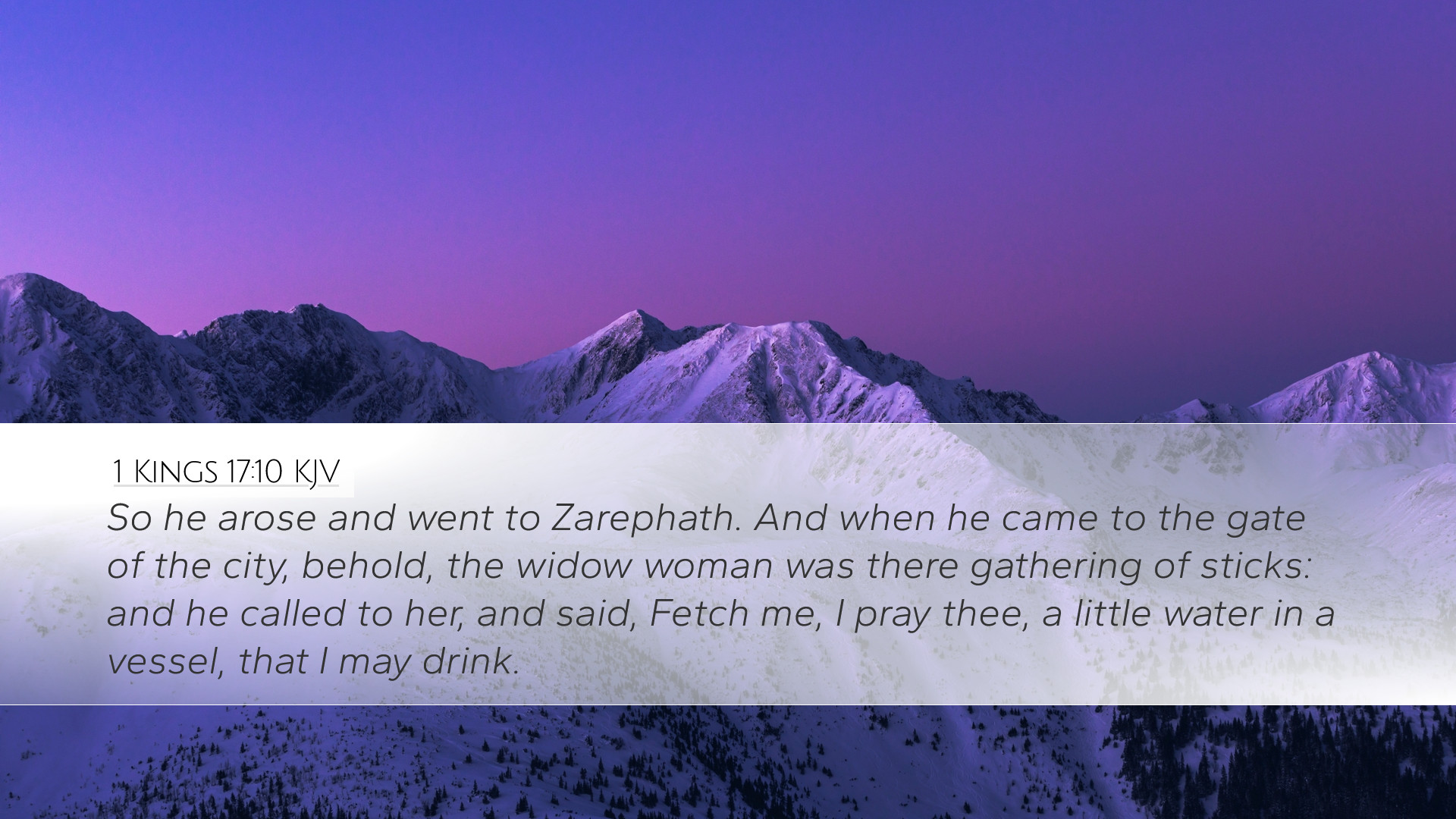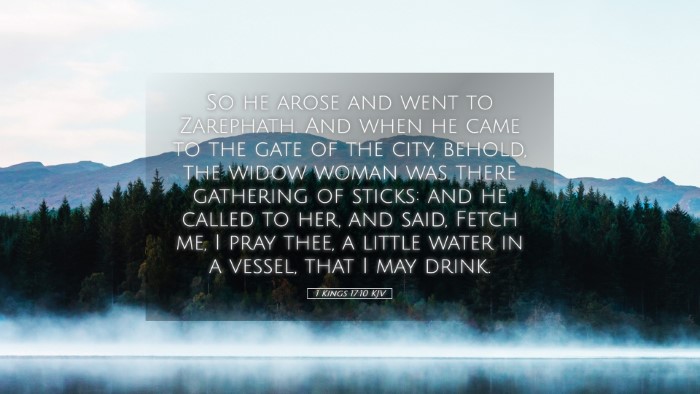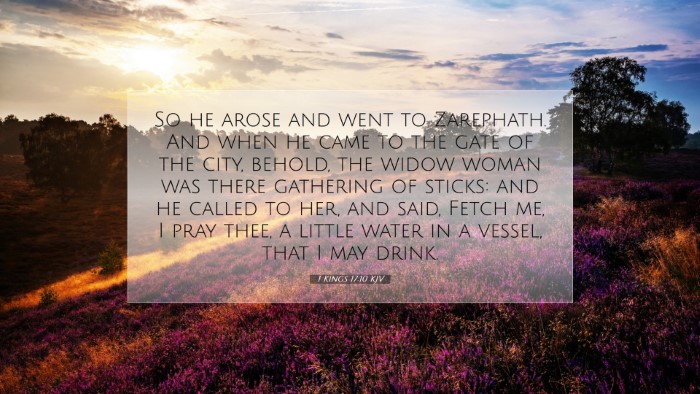Commentary on 1 Kings 17:10
1 Kings 17:10 states:
"So he arose and went to Zarephath. And when he came to the gate of the city, indeed a widow was there gathering sticks; and he called to her and said, 'Please bring me a little water in a cup, that I may drink.'" (NKJV)
Contextual Overview
This verse falls within the narrative of Elijah's ministry, particularly during a time of severe drought and famine as a judgment against Israel's idolatry. The account of Elijah's encounter with the widow at Zarephath is a profound demonstration of God's provision and the faith required to accept it.
Insights and Theological Reflections
Commentators such as Matthew Henry, Albert Barnes, and Adam Clarke provide numerous insights into this verse, emphasizing several themes relevant for modern readers, especially pastors, theologians, and scholars.
The Obedience of Elijah
Elijah's initial obedience to God is critical. When commanded to go to Zarephath, he acted without delay. Henry notes that such obedience reflects a profound trust in God's directives, even when circumstances appear bleak. This highlights the importance of divine guidance and the necessity of following God's will amidst uncertainties.
The Symbolism of the Widow
The widow represents both a literal and a metaphorical embodiment of despair. Barnes suggests that her act of gathering sticks symbolizes the remnants of hope in dire straits. This interaction not only signals God's provision for her and her son but demonstrates His care for those marginalized and in need.
God's Provision in Desperation
This encounter reinforces the theme of divine provision in seemingly impossible circumstances. As Clarke elaborates, the request for water was not just practical but also significant as it reflects the deeper spiritual thirst and need for life essentials. The widow's willingness to engage with Elijah sets the stage for God's miraculous intervention, pointing to how faith often opens doors to provisions we may not expect.
Practical Application for the Church
- Faith in Action: The passage encourages believers to act in faith when guided by God, even when situations seem impossible. It invites reflection on personal obedience and trust in God's plans.
- Empathy Towards the Marginalized: The widow's plight is a reminder for the church to reach out to those in need, embodying Christ's love through compassionate action.
- Embracing the Unexpected: The narrative teaches that God can work through unexpected circumstances and people, challenging the church to remain open to unfamiliar paths of divine provision.
Historical and Cultural Considerations
Understanding the historical context is crucial to grasp the significance of Elijah's journey to Zarephath. The region was within Gentile territory, representing a critical moment where God's grace extended beyond Israel. Henry points out that God's choice of a widow as a vessel of His provision emphasizes the universality of His mercy and the call to recognize God's sovereignty across boundaries.
Theological Implications
This passage upholds the sovereignty of God over creation and His faithfulness to those who trust in Him. Barnes notes that the widow's interaction with Elijah signifies God's purposeful plans, often using the weak and the lowly to execute His will. This reflects a theological motif where God's provision is intricately tied to human interaction, establishing a covenant relationship that requires faith.
The Miracle of Provision
The request for "a little water in a cup" serves as a prelude to the subsequent miracle of sustenance. Clarke elaborates that this moment foreshadows the eventual miraculous feeding of the widow and her son, illustrating how God's provision often arrives through seemingly simple and ordinary requests.
Conclusion
In closing, 1 Kings 17:10 serves as a powerful reminder of God's provision, the importance of faith, and the sacrificial acts of love that often precede divine miracles. The insights drawn from the public domain commentaries create a tapestry of understanding that encourages deeper contemplation on the ways God interacts with humanity in times of crisis. For pastors, students, theologians, and Bible scholars, this passage invites further exploration of their own faith dynamic and the ways they might embody God's provisions in their communities.


